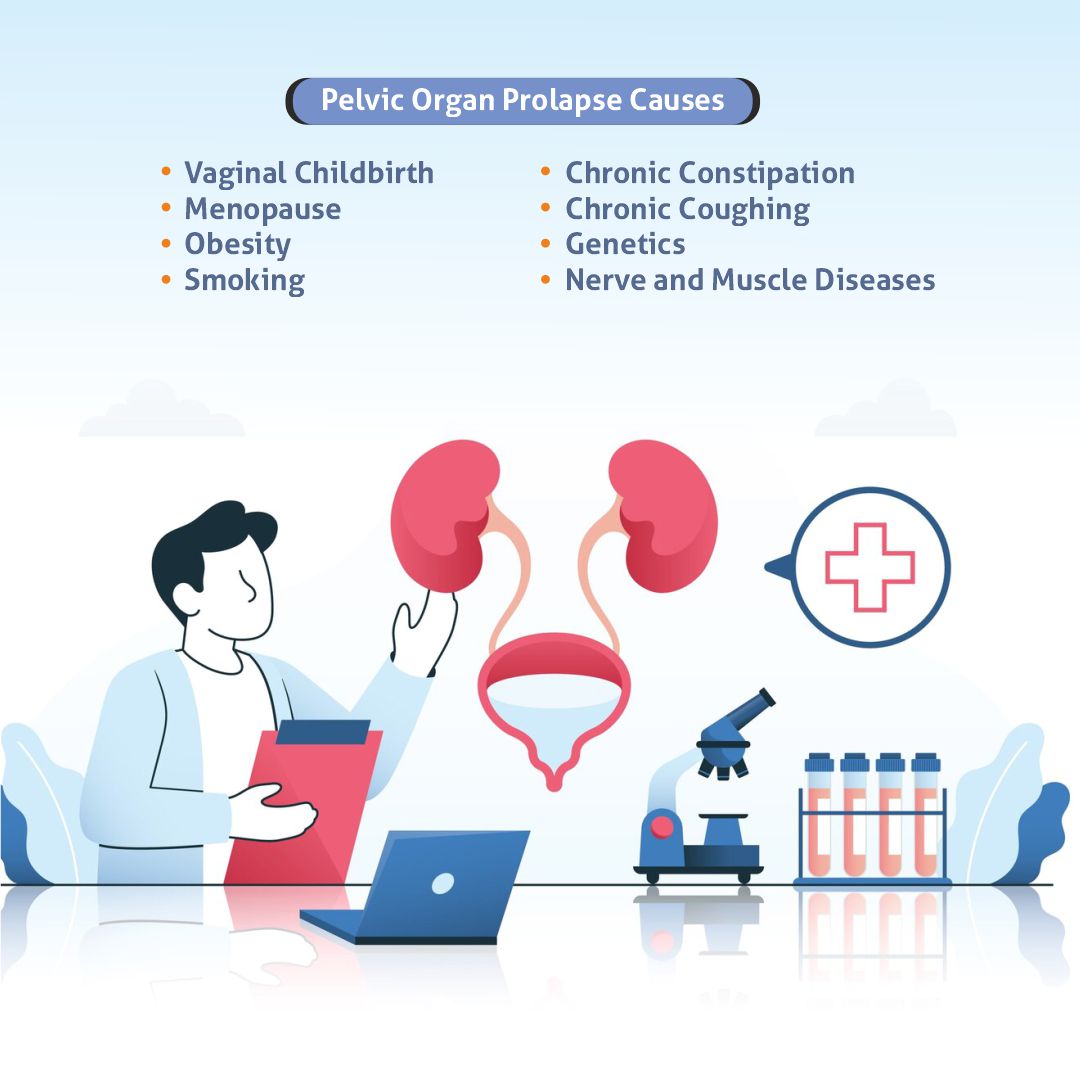
Women are indeed superheroes. They can give birth to a new life, and that’s just the tip of the iceberg. But, when it comes to their health, there are certain issues that are often swept under the rug, making things unbearable for them. One such issue is pelvic organ prolapse (POP). Don’t be surprised if you haven’t heard of this condition before. It is because most of the women are embarrassed to talk about this condition and they suffer in silence.
POP is not life-threatening, but it is necessary to consult an expert before things take a severe turn. Hence, it is important to raise awareness about this condition and remove the stigma surrounding it.
POP is a condition where the muscles in your pelvis weaken, causing one or more organs in your pelvis (vagina, uterus, bladder and rectum) to sag. In more severe cases, an organ bulges onto another organ or outside your body. It is a type of pelvic floor disorder, along with urinary and fecal incontinence.
While people of all sexes can experience pelvic organ prolapse, around 50% of women will develop POP over their lifetime. Pelvic organ prolapse symptoms include a sensation of pelvic pressure or bulging through the vaginal opening, urinary incontinence, voiding dysfunction, fecal incontinence, incomplete defecation, and sexual dysfunction.
Common Pelvic Organ Prolapse Causes:

1. Vaginal Childbirth- According to one study, around 35% of women who have recently given birth suffer from symptoms of prolapse. During pregnancy, hormones soften pelvic tissues and the pelvic floor muscles work harder to support the growing baby. This can weaken the pelvic floor and make one or more pelvic organs drop down from their normal position and bulge into the vagina.
2. Menopause- During menopause, the body experiences a decline in estrogen levels, which can lead to thinning of the pelvic floor muscles and connective tissues. This can cause the pelvic organs to shift from their normal position and lead to POP.
3. Obesity- Being overweight or obese can increase the risk of pelvic floor disorders. This is because the excess weight puts pressure on the pelvic floor muscles which can weaken them over time. This can cause the pelvic organs descend and bulge out of vagina.
Apart from vaginal childbirth and menopause, there are several other factors that can increase the risk of POP like genetics, smoking, chronic constipation, chronic coughing, nerve and muscle diseases.
Mrs. Vimala Trivedi (name changed) came to us with a POP condition in 2020. She had been experiencing pelvic organ prolapse for almost six months but kept mum about it as was embarrassed about how adult kids would react to her health issue. It wasn’t until one day during urination that she felt both her uterus and bladder prolapse more than usual. She tried pushing them back with her hand but to no avail. That’s when she decided to seek medical help.
She was referred to Shalby Hospital’s gynecologist for treatment. The clinical examination revealed that her uterus and bladder were almost out of her vagina. There was no scope for medical management, and she was advised to undergo a hysterectomy surgery. After the surgery, she was able to go back to her routine life in just a month.
Explaining about the expert treatment of POP, Dr. Juhi Patel, Gynecologists‘, Shalby Hospitals, SG said, “Immediate check-up with a specialist is must with pelvic disorders like prolapse and urinary incontinence. We specialize in both surgical and non-surgical remedies. Surgical remedies include hysterectomy and prolapse repairs. Non-surgical remedies include lifestyle changes, medication, and physical therapy.”

At Shalby Multi-Speciality Hospital, we take pride in our team of experienced doctors who specialize in pelvic organ prolapse surgery and non-surgical remedies. Our state-of-the-art facilities and equipment ensure that our patients receive the best possible care. Our experts also specialize in urology treatments such as kidney transplantation, dialysis, and treatment for kidney cancer, kidney stones, haematuria, and urinary retention, among others.
We understand that pelvic organ prolapse can be a sensitive issue, which is why we have a team of compassionate and empathetic doctors who will guide you through the process with utmost care and professionalism. Our doctors are equipped with the latest knowledge and technology to provide you with the most effective treatment options.
If you or someone you know is experiencing symptoms of pelvic organ prolapse, don’t hesitate to consult our expert. Early diagnosis and treatment can help prevent complications and improve quality of life. We are here to help you every step of the way.
If you have been facing issues with your uterus, ovaries, cervix, or vagina and your Gynaecologist suggested for a procedure to evaluate a gynecological problem further, then there is nothing to worry about as it’s very common among women. The advancement in...
Both fibroids and cysts are common in females, especially in the period before menopause. Fibroids are usually noncancerous tumours that form in the muscular wall of the uterus. Ovarian cysts are sacs filled with fluid and are found in or over the...
Recurrent pregnancy loss is defined as two or more consecutive pregnancy losses of clinically recognized pregnancies prior to 20 weeks of gestation. Clinically recognized pregnancies are those in which an ultrasound examination has confirmed the pregnancy or those in which pregnancy tissue...